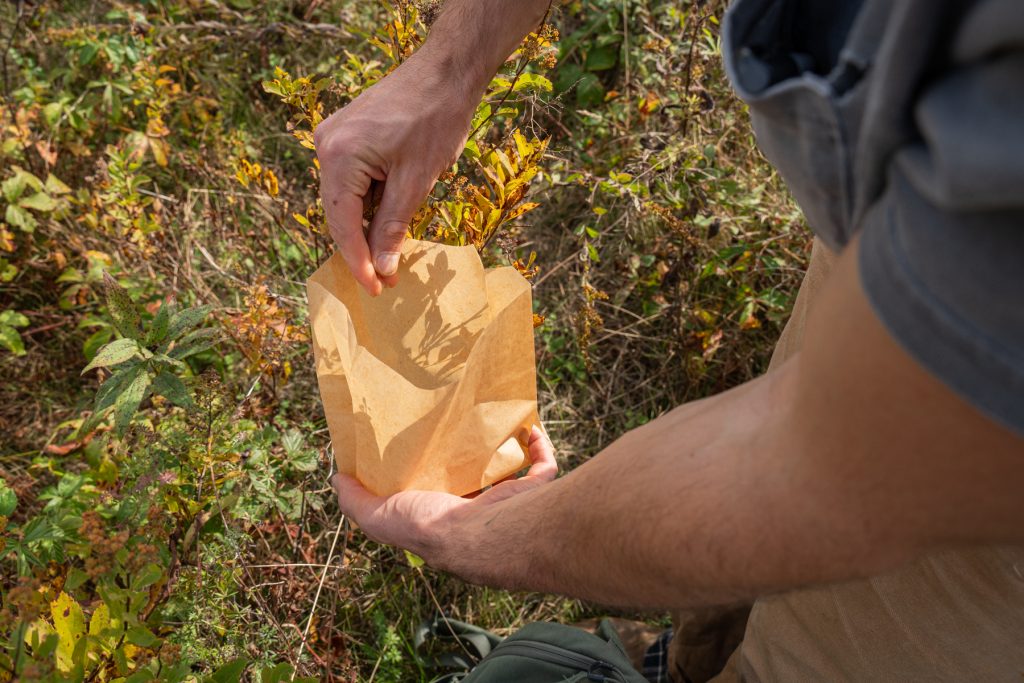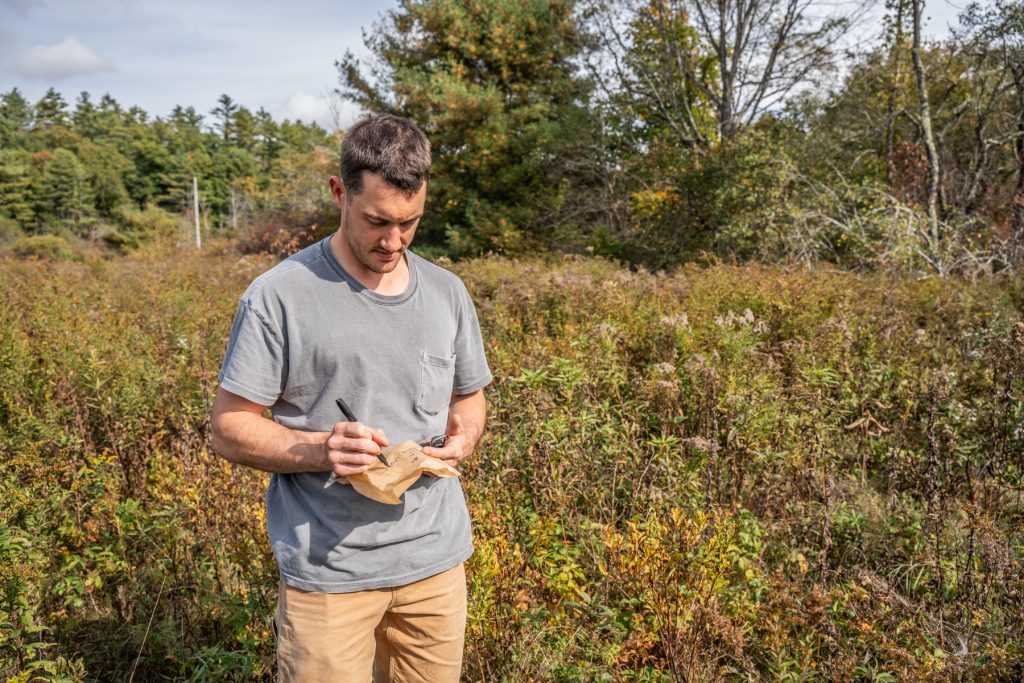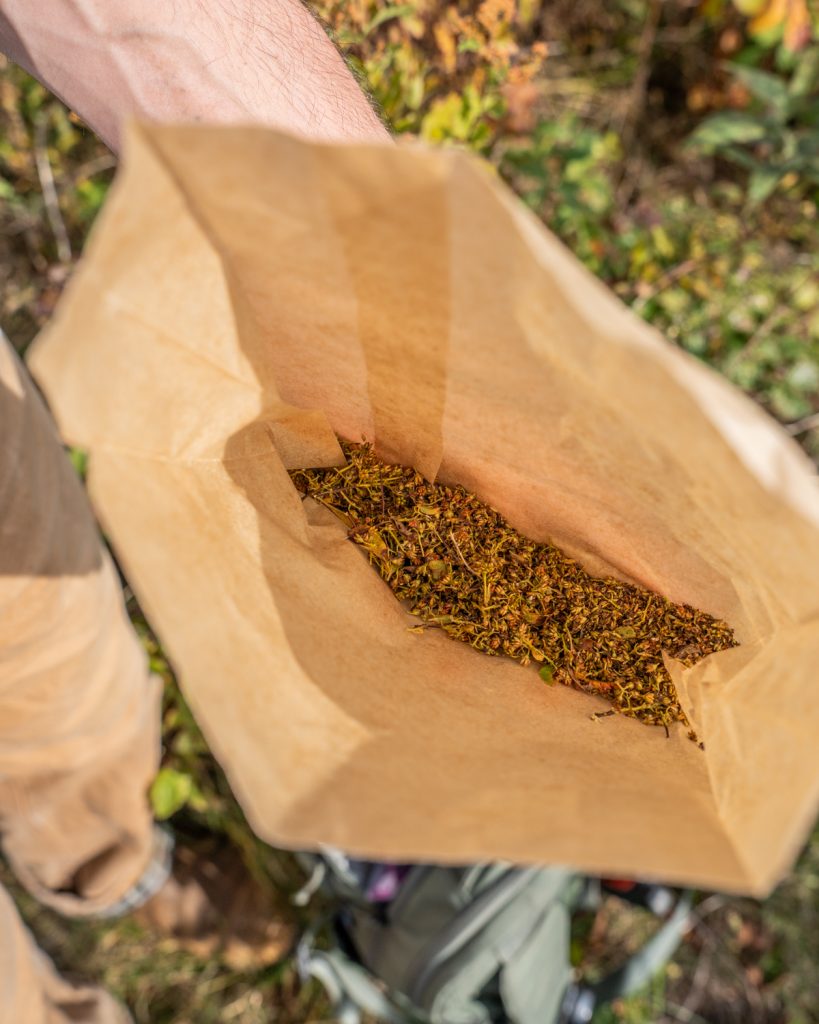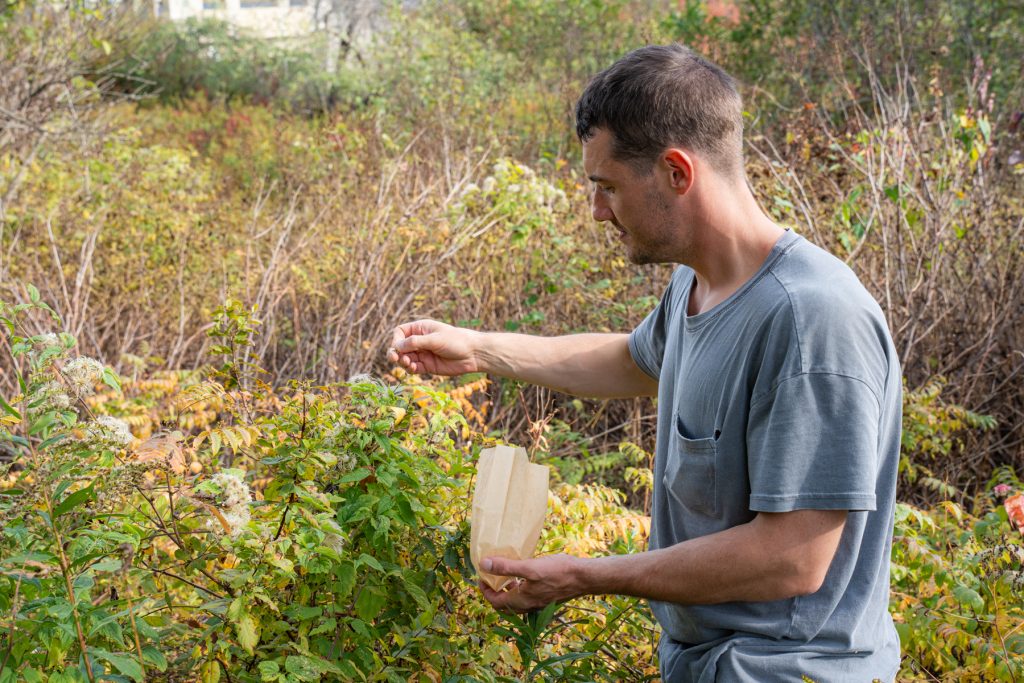In recent years, home gardeners and landscapers have developed a growing interest in planting native plants. These species are uniquely adapted to their environments, making them essential for supporting local ecosystems and for resilience in a changing climate. However, finding local native plants—and particularly their seeds—remains a challenge, especially at the scale that many seeds are needed for projects like land restoration after wildfires or floods.
As climate change accelerates and ecological restoration projects become increasingly vital, the demand for local Northeast native seeds has outpaced supply. That’s why the Gardens is proud to join the Northeast Seed Network, a new initiative dedicated to expanding the availability of native seeds.
What is the Northeast Seed Network?
The Northeast Seed Network is a regional program launched by the Ecological Health Network, Native Plant Trust, and others working in collaboration with organizations like Wild Seed Project and Coastal Maine Botanical Gardens across the Northeast.
The network’s mission main goals are:
- To promote ecological restoration through improved access to genetically diverse, regionally native seeds.
- To build partnerships between organizations working toward a common goal of increased seed supply.
By targeting wild seed collection, creating seed production plots, and facilitating cooperation, the network is working to ensure that native seeds are readily available for large-scale restoration efforts.

Why Are Native Plants Important?
Native plants are the backbone of resilient ecosystems. They’ve evolved to thrive in specific climates, soils, and microclimates. But the benefits of native plants go beyond resilience:
- Ecological Restoration: Native plants are crucial for rebuilding ecosystems after natural disasters, restoring habitats for wildlife, and ensuring long-term ecological stability.
- Genetic Diversity: Research shows that individual populations of the same plant species vary genetically depending on local conditions. Preserving and restoring these genetic nuances ensures healthier ecosystems and greater adaptability in the face of environmental changes.
- Practical Applications: From stabilizing hillsides after road construction to providing seed banks for future needs, native plants have practical applications across industries.
Despite these benefits, native seeds are in short supply in the bulk quantities needed for restoration work. That’s where the Northeast Seed Network comes in: by creating a reliable seed production system, the network is addressing both current and future demands.

Our Role in the Network
We’re excited to contribute to this vital initiative. While we don’t have the capacity for large-scale seed production plots, future partners may, and presently our focus is on identifying and collecting wild native seeds in Maine and making them available to land stewards. Here’s what that process entails:
- Locating Wild Spaces: We’re seeking natural ecosystems—free from hybridized cultivars. These areas must have robust, self-sustaining plant populations to ensure the genetic integrity of the seeds.
- Partnering with Landowners: Collaborations with land trusts, agencies, and private landowners are key. We work with these organizations to secure permission for seed collection.
- Collecting Wild Seeds: Once suitable sites are identified, we harvest seeds conservatively and responsibly, ensuring we leave enough for the plants to thrive naturally.
In the long term, our role will focus on sourcing, collecting, and storing seeds from the wild. These seeds will then be made available to partnering land stewards. Additionally, Coastal Maine Botanical Gardens will serve as the physical location and repository for all seed collection and associated herbarium voucher specimens of the Northern Appalachian-Atlantic Maritime Hub – the northernmost hub — of the Network.

What Plants Are We Focusing On?
While the Northern Appalachian-Atlantic Maritime Hub partners, including Wild Seed Project, Intervale Nursery, Acadia National Park, and others are still developing a list of priority taxa, our team has identified several plant species native to Maine that align with the network’s goals. These plants were chosen for their ecological value, and potential for widespread application in restoration projects in our local ecoregions. A few early examples include:
- Black chokeberry (Aronia melanocarpa)
- Fowl manna grass (Glyceria striata)
- Virginia rose (Rosa virginiana)
- Northern bayberry (Myrica pensylvanica, syn. Morella pensylvanica)
- Meadowsweet (Spiraea alba var. latifolia)
- Seaside goldenrod (Solidago sempervirens)
Each species plays a unique role in supporting local ecosystems, whether it’s through stabilizing soil, providing food for pollinators, or enhancing biodiversity.
What’s Next?
This fall, we collected over 50,000 seeds from the preserves of Midcoast Conservancy. These seeds will be passed on to organizations and farms within the network, where they will be cultivated into larger seed plots. In the coming years, we hope to see these seeds used in restoration projects across the Northeast. In February, our Director of Plant Science and Collections will travel with other members of the Network to present our collaborative work at the Institute for Applied Ecology’s National Native Seed Conference in Tuscon, AZ.
If you’re a land trust, preserve, or individual interested in supporting this initiative, we’d love to hear from you. Together, we can prepare for future restoration needs following violent storm events, fires, or invasive species removals.
For more information on our efforts or how to get involved in efforts of the Northern Appalachian-Atantic Maritime Hub of the Network, contact our Conservation Coordinator, Bret Bemis, at BBemis @ mainegardens.org. For more information about the network, visit The Northeast Seed Network.
By joining forces with the Northeast Seed Network, The Gardens is proud to play a role in expanding access to native seeds, fostering ecological restoration, and building a network of hope for the future.


